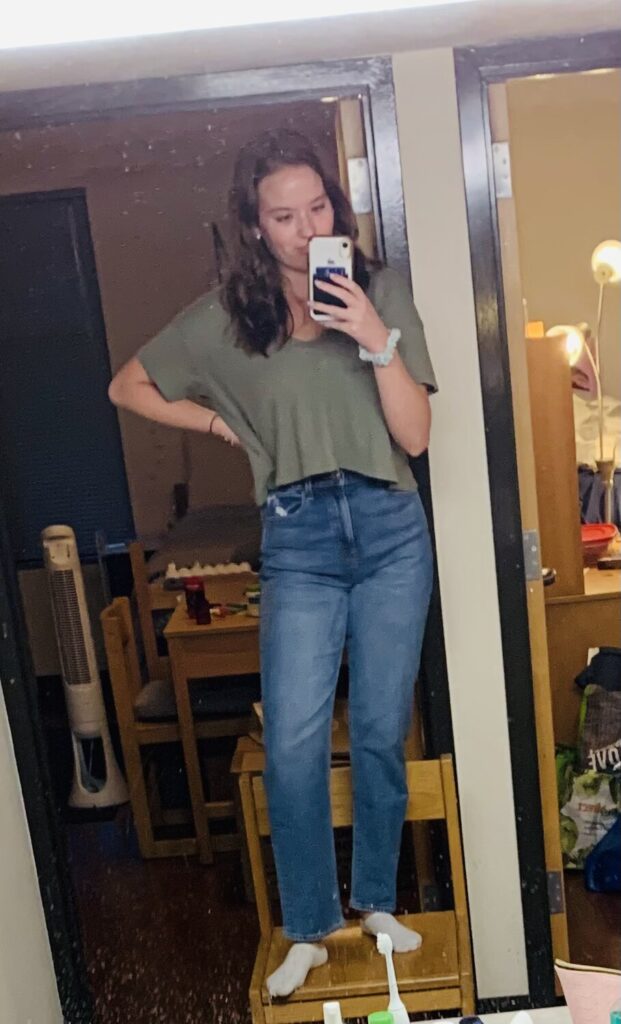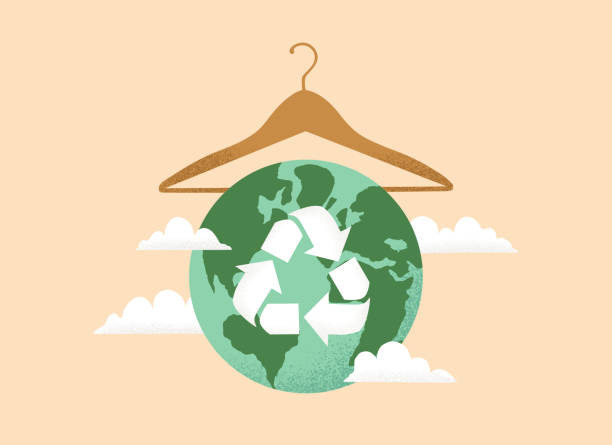If online shopping is so bad, then why is it so relaxing? Why is it so satisfying to fill my carts with all of the items that I want, knowing full well that I can’t afford the thousands of dollars of merchandise? Why does it bring me comfort to organize wish lists with things that I will probably never get around to buying? These are the million-dollar questions, I know.
In my first semester at college, I was probably ordering new clothes once a month. It was so convenient to ship them to my dorm, and it’s always fun to get a package when you’re at school, even if you’re the one sending it. However, I do have a habit of ordering clothes just to return them in the next week. My mom considers this a bad habit, but I consider it being fiscally responsible and making sure to get my money back whenever I order something that I don’t like or don’t need. To each their own.

Once the pandemic hit, the term “retail therapy” seemed to take on a whole different meaning. It was one of several ways to pass time during our days of isolation, but it also seemed like a way to stay connected with the outside world and brighten up your life by getting something new or treating yourself in whatever form that takes—whether it was new clothes (ironic, considering the furthest place I was going on an average day was to the kitchen downstairs), a new book to read, or a new appliance to try out. Much more convenient and safer than going shopping in-person, and much less work and cognitive energy being spent.
But, like many things in life, online shopping is not immune to corrupt business practices, ones that of course flourish in our capitalist system; ones that not only take advantage of employees that work in factories with egregious conditions and contribute to environmental destruction, but also manipulate us as consumers because they offer services that we are compelled to utilize.
Take Amazon, an example I’m sure we are all intimately familiar with. As a college student, Amazon is a lifesaver. Need a book for class immediately? It could come the next day. Need back to school supplies but don’t have access to transportation? Order it online and just walk to your mailroom to pick it up. Want to buy a coffee machine but don’t know which ones are the best to buy? Look at the reviews and have it in two days. It’s easy, it’s quick, it’s affordable, and the products are usually very good quality.
The cost, of course, is more than just the price of the item. The cost is that you are compelled to take part in a system that is as dangerous as it is convenient: employees are being pushed to the brink to work faster in unsafe working conditions, they are kept in the dark about COVID-19 and put at a greater risk for it, they work more than 60 hours a week, and they have to commute two or three hours to get to work, just to name a few of the many issues cited by Justine Medina and Brett Daniels, who are members of the organizing committee for Amazon’s Labor Union in Staten Island.
The same thing goes with fast fashion, “the mass production of cheap, poor quality, disposable clothing.” College students are very susceptible to fast fashion from companies like Shein, who take advantage of a person’s inclination to spend less money while still trying to keep up to date with fast-evolving trends. We see people our age everyday get on TikTok to take us through their shopping hauls, and it makes us want to go out and spend our money to do the same. Shein though, unlike Amazon, usually does not have as good-quality products and is very hit or miss, which personally gives me more of a reason not to shop there. I ordered from Shein one time freshman year, and out of the three items I kept, I have worn one of them exactly once. That is, of course, a perk of fast fashion—the clothes are so cheap that if you don’t wear them, you don’t feel guilty because it didn’t cost you very much. But, that’s also why the cycle is so hard to break, as people are more inclined to dispose of their clothes faster (not usually through sustainable methods) and simply order more.
I want to be abundantly clear that this post isn’t meant for me to sit here on a pedestal, tell you where you can and can’t shop, or make you feel bad. It’s more meant for myself—and hopefully others who feel similarly—to think through these pervasive problems and wonder where we can go from here. I still shop at Amazon and I don’t blame people who order from Shein because truly we are all just doing the best we can to try to save money and navigate a system that is inherently unfair at every step of the way.
I am caught between two schools of thought—on one hand, maybe individuals can try to be more aware of where they are shopping from and shop more sustainably. There are many good options, with the best probably being thrifting your items. Another good solution is to support more small businesses as opposed to large corporations, such as spending money on Redbubble (there is a student discount available!) or Etsy. I personally like buying clothes from American Eagle and Aerie, and I know they are beginning to make more products that are sustainable and eco-friendly.

On the other hand, I also think that it is unfair to put the pressure on the individual and not the company—because yes, you could do your research and that would be great, but often we just don’t have the time or energy (especially during a global pandemic), and habits are hard to break. It feels like a losing battle, made worse by living through a time where we rely greatly on online shopping and companies like Amazon or Shein to get us the items we need in a safe, efficient manner.
We debated this issue a lot in my ethics class last semester, and I still don’t really have an answer. I suppose the lesson here is to choose your battles when you can and recognize that making these choices can be difficult when there are many different factors at play and you aren’t in a position where you can spend more money on more expensive yet sustainable brands. Hopefully someday we can get to a place where the onus is not on us to do better, but for companies and brands to both recognize and actually care about the hurt they cause to both human beings and the environment, instead of just worrying about profits.
The good news is companies like the Campus Clipper are always looking for ways to help students save money and shop locally. For instance, if you’re looking to save 10% on art supplies, check out the coupon below and order from Blick Art Materials!

By: Katie Reed
Katie Reed is a senior at Villanova University studying English and Communication. She is in utter disbelief that she just admitted to being a senior. She loves to read, but has made barely a dent in the increasingly large pile of books on her bookshelf that she told herself she would read this summer. She hopes to enter a career in the editing and publishing industry.
For over 20 years, the Campus Clipper has been offering awesome student discounts in NYC, from the East Side to Greenwich Village. Along with inspiration, the company offers students a special coupon booklet and the Official Student Guide, which encourages them to discover new places in the city and save money on food, clothing, and services. At the Campus Clipper, not only do we help our interns learn new skills, make money, and create wonderful e-books, we give them a platform to teach others. Check our website for more student savings and watch our YouTube video showing off some of New York City’s finest students during the Welcome Week of 2015.
Tags: covid-19, Fashion, pandemic, retail therapy, shopping

